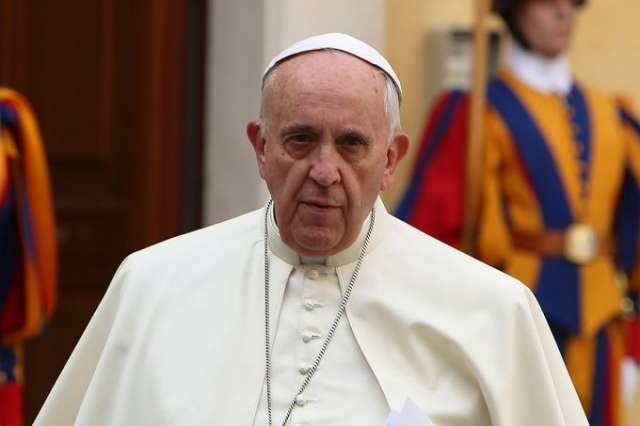Pope Francis last Saturday issued a harsh condemnation of the underlying eugenic mentality in society that leads many to abort children who are are disabled, saying the Church must be a place of acceptance and welcome for all who are vulnerable.
While great strides have been made in recent years in terms of recognizing the dignity of every person, especially the weakest and most vulnerable, “at the cultural level there are still expressions that undermine the dignity of these people due to the prevalence of a false conception of life,” the Pope said.
“An often narcissistic and utilitarian vision unfortunately leads not a few to consider people with disabilities as marginal, without perceiving in them the multifaceted human and spiritual wealth,” he said.
Far too prevalent in common thought is also “an attitude of rejection” toward people with disabilities, as if their handicap “impedes them from being happy and fully realizing themselves,” he said.
“This is proven by the eugenic tendency to suppress the unborn who have some form of imperfection.”
According to the Catholic News Agency, an example of this “eugenics” mentality is a recent article in CBS News claiming that Iceland has come close to being the first country to “eradicate” Down syndrome, meaning they are aborting every unborn child found to have the condition.
Pope Francis offered his comments to participants in a Vatican-sponsored conference dedicated to catechesis for those with intellectual disabilities, titled “Catechesis and Persons with Disabilities: A Necessary Engagement in the Daily Pastoral Life of the Church.”
Taking place Oct. 20-22 at the Pontifical Urbanianum University in Rome, the conference drew over 420 people who work in catechesis from professions and countries all over the world, as well as people with disabilities themselves.
Among the participants is Bridget Brown, a young actress, speaker and prolife advocate with Down syndrome. In a letter written to the Pope, Brown said her heart breaks to think that “I might be the last generation of people with Down syndrome.”
“The world will never again benefit from our gifts,” she said, explaining that she does not “suffer” from the condition, but is “filled with joy” to be alive.
Referring to German dictator Adlof Hitler and the Holocaust Museum in Washington D.C. commemorating the thousands of people who died under the Nazi regime, Brown noted how people with disabilities were often the first to be killed.
“It seems to me we are doing the same thing to children with disabilities today in our country,” she said. However, despite being discouraged, Brown said she has hope for people with disabilities, and prays for people “who think we don’t have the right to live.”
In his speech, Pope Francis said the response to this “eugenic tendency” must be one of love. “Not the false, clever and pious kind,” he said, “but the one that is true, concrete and respectful.”
To the extent that people with disabilities are “welcomed, loved, included in the community and accompanied to look to the future with confidence,” a true path of life develops and “lasting happiness is experienced.”
This goes for everyone, but even more so the most fragile, he said, adding that faith is “a great companion” which allows these people to feel God’s presence closely, no matter their condition.
Francis said that as far as the Church goes, she cannot be “voiceless” or “out of tune” in the defense and promotion of people with disabilities.












